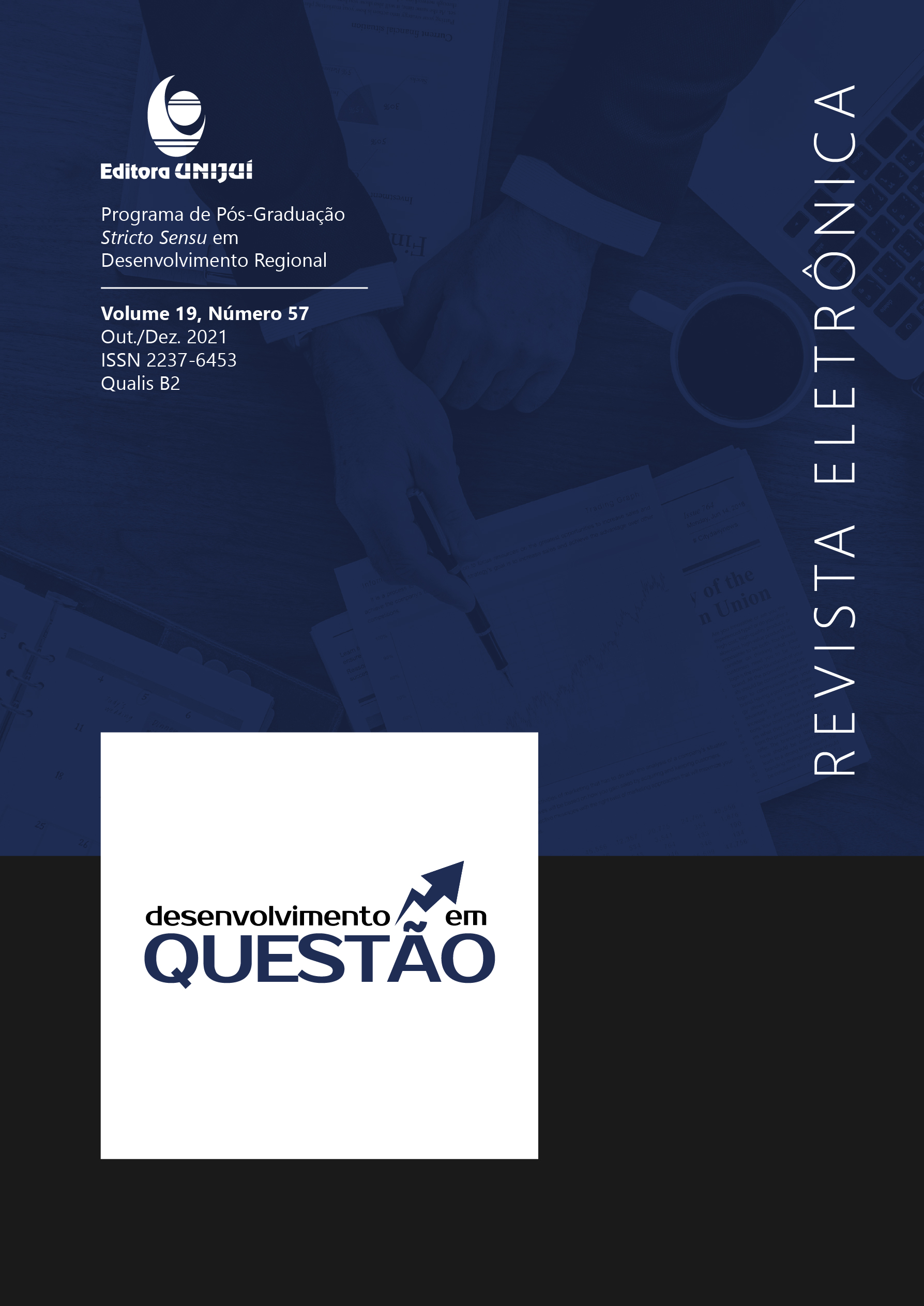Estudo do Relacionamento entre as Capacidades de Absorção e de Inovação em PME's
STUDY OF THE RELATIONSHIP BETWEEN ABSORPTION AND INNOVATION CAPABILITIES IN SMES
DOI:
https://doi.org/10.21527/2237-6453.2021.57.11704Palavras-chave:
Capacidade de Absorção. Capacidade de Inovação. PME´s. Capacidades Dinâmicas.Resumo
O objetivo deste trabalho é analisar a relação da capacidade de absorção com a capacidade de inovação de PME's do setor industrial. Quanto a metodologia, a pesquisa caracteriza-se como descritiva-explicativa, e quanto aos meios de investigação a pesquisa é de campo, cuja etapa ocorreu com procedimentos de coleta de dados quantitativos por intermédio da aplicação de survey de amostra, de caráter transversal. Constituiu-se categorias descritivas iniciais, resgatadas de conceitos à partir da plataforma teórica da investigação sobre capacidade de absorção de conhecimento e capacidade de inovação. Desenvolveu-se a análise descritiva, prosseguindo com análises estatísticas multivariadas (modelagem de equações estruturais) utilizando-se o modelo Partial Least Squares Path Modeling – PLS-PM, com o uso do software Smart PLS® 2.0. Os testes de hipóteses revelam que a capacidade de absorção e, de forma relevante, a transformação de conhecimento, exerce efeito positivo na capacidade de inovação. As limitações do estudo derivam do desenvolvimento do modelo à partir de dados de corte transversal e não longitudinal baseando-se a análise ao período deste recorte e da delimitação da população de pesquisa onde os resultados são pertinentes às pequenas e médias empresas da indústria têxtil , ensejando oportunidades de pesquisas futuras, como abordagem longitudinal e a ampliação da população de pesquisa para outros setores.
Downloads
Publicado
Como Citar
Edição
Seção
Licença
Ao publicar na Revista Desenvolvimento em Questão, os autores concordam com os seguintes termos:
Os trabalhos seguem a licença Creative Commons Atribuição 4.0 Internacional (CC BY 4.0), que permite:
Compartilhar — copiar e redistribuir o material em qualquer meio ou formato;
Adaptar — remixar, transformar e criar a partir do material para qualquer fim, inclusive comercial.
Essas permissões são irrevogáveis, desde que respeitados os seguintes termos:
Atribuição — Atribuição — os autores devem ser devidamente creditados, com link para a licença e indicação de eventuais alterações realizadas.
Sem restrições adicionais — não podem ser aplicadas condições legais ou tecnológicas que restrinjam o uso permitido pela licença.
Avisos:
A licença não se aplica a elementos em domínio público ou cobertos por exceções legais.
A licença não garante todos os direitos necessários para usos específicos (ex.: direitos de imagem, privacidade ou morais).
A revista não se responsabiliza pelas opiniões expressas nos artigos, que são de exclusiva responsabilidade dos autores. O Editor, com o apoio do Comitê Editorial, reserva-se o direito de sugerir ou solicitar modificações quando necessário.
Somente serão aceitos artigos científicos originais, com resultados de pesquisas de interesse que não tenham sido publicados nem submetidos simultaneamente a outro periódico com o mesmo objetivo.
A menção a marcas comerciais ou produtos específicos destina-se apenas à identificação, sem qualquer vínculo promocional por parte dos autores ou da revista.
Contrato de Licença (para artigos publicados a partir de 2025): Os autores mantêm os direitos autorais sobre seu artigo, e concedem a Revista Desenvolvimento em Questão o direito de primeira publicação.











